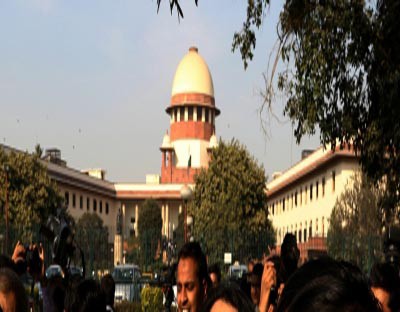
New Delhi, The Supreme Court has observed that indefinite adjournment in a matter relating to anticipatory bail, that too after admitting it, is detrimental to the "valuable right" of a person.
A bench headed by Chief Justice N.V. Ramana and comprising Justices A.S. Bopanna and Hima Kohli said: "When an application for anticipatory bail was listed before the learned Single Judge, which was also accompanied by an application for ad-interim relief, the learned Judge should have decided the same one way or the other, so far as the ad-interim prayer or should have taken up for consideration after giving some reasonable time to the state."
It added that even if admitted, the judge should have listed the same for final disposal on a specific date, keeping in view the nature of relief sought in the matter.
"Not giving any specific date, particularly in a matter relating to anticipatory bail, is not a procedure which can be countenanced. We are of the considered view that this type of indefinite adjournment in a matter relating to anticipatory bail, that too after admitting it, is detrimental to the valuable right of a person," it held.
The top court, however, made it clear it is not going into the merits of the matter.
"When a person is before the court and that too in a matter involving personal liberty, least what is expected is for such a person to be given the result one way or the other, based on the merit of his case and not push him to a position of uncertainty or be condemned without being heard, when it matters," it said.
The top court's February 21 order came on plea filed by Rajesh Seth citing delay by Chhattisgarh High Court in deciding his pre-arrest bail plea.
The petitioner was aggrieved that the high court merely admitted the anticipatory bail application filed by him with a further direction to list in due course, but did not consider his application seeking interim protection during pendency of the bail application. Seth said the co-accused in the same FIR has been granted interim protection from arrest till the final disposal of application for anticipatory bail by the high court.
The top court asked the single judge of the high court to dispose of the anticipatory bail application, pending adjudication before him, on its own merits and in accordance with law, expeditiously and preferably within a period of two weeks.
"If the main application cannot be disposed of for any reason, the I.A. for interim relief be considered on its own merits. Till such time, we grant interim protection from arrest to the petitioner herein. We clarify that this shall however not influence the view to be taken by the Learned Single Judge on merits," it said.


.jpeg)

